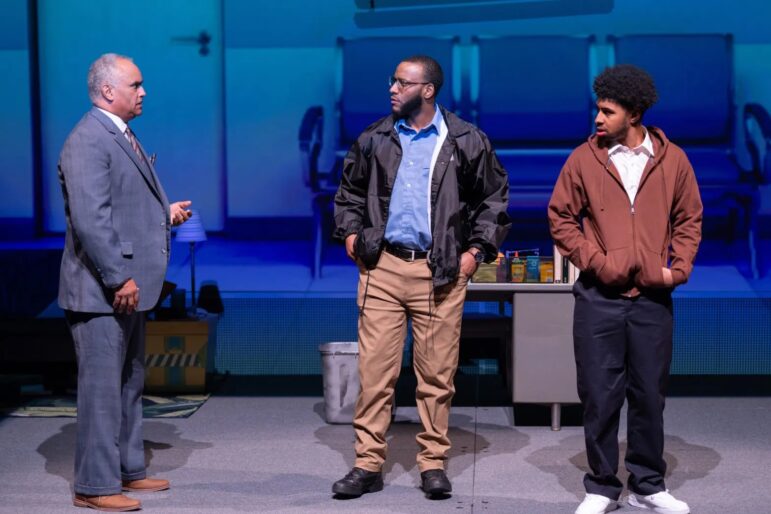Sometimes a play is so explosive and so completely owned by the actors, it seems to flash by before we’ve had a chance to catch our breaths.
Such is the case with award-winning playwright Dominique Morisseau’s “Pipeline,” an African-American Shakespeare Company production onstage through March 31 at the Taube Atrium Theater in San Francisco.
The show is staged with focus and fire by company director L. Peter Callender. The title refers to the way minority students in high schools are handed over to the justice system for their misdeeds—the school-to-prison pipeline—rather than dealt with by school authorities.
In “Pipeline,” which premiered in 2017 at Lincoln Center Theater in New York, Morisseau, a former schoolteacher in Detroit, creates characters who speak their minds. As with the people in many of her 10 plays, their indelible opinions and feelings bring them nearly continual strife.
Nya (Leontyne Mbele-Mbong), a single mother who teaches at an inner-city public school, is trying to raise her son Omari (Atlantis Clay), who has attacked a teacher after being harassed in the classroom. It is his third strike, and his future looks dim. Nya is consumed with fear that Omari is doomed and that she cannot protect him.
Omari attends a pricey private school paid for by his indifferent, well-heeled father (Michael Gene Sullivan). The two confront each other stiffly in one scene. Both long for a relationship but are unable to make it happen.
Omari, who feels a festering anger about his life and his parents (though he expresses concern about Nya’s health), throws over his girlfriend Jasmine (Ije Success) and marches toward a predictably bad end.

In this production’s effective staging, lines of Gwendolyn Brooks’ poem “We Real Cool” are vividly projected behind Giulio Perrone’s inventive set. Rounding out the scenes are deafening videos picturing police brutality (projections are by Ramiro Segura and sound design is by Raymond Archie).
Brooks’ words are often spoken and backlit, leading to the poem’s final prediction: “We die soon.”
Desperate and raw, “Pipeline” unfolds with a strong sense of inevitability in every line. Some moments don’t ring true, but Morisseau’s characters speak bluntly and directly.
Appealingly, the show also has a good supply of humor provided by Dun (Gary Moore), a school security guard who relates warmly to Omari, and Laurie (Kelly Rinehart), who teaches at Nya’s school.
African-American Shakespeare Company’s “Pipeline” is onstage through March 31 at Taube Atrium Theater, Veterans Building, 401 Van Ness Ave., San Francisco. Tickets are $15 to $40 at african-americanshakes.org.
